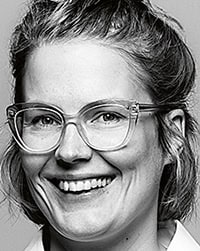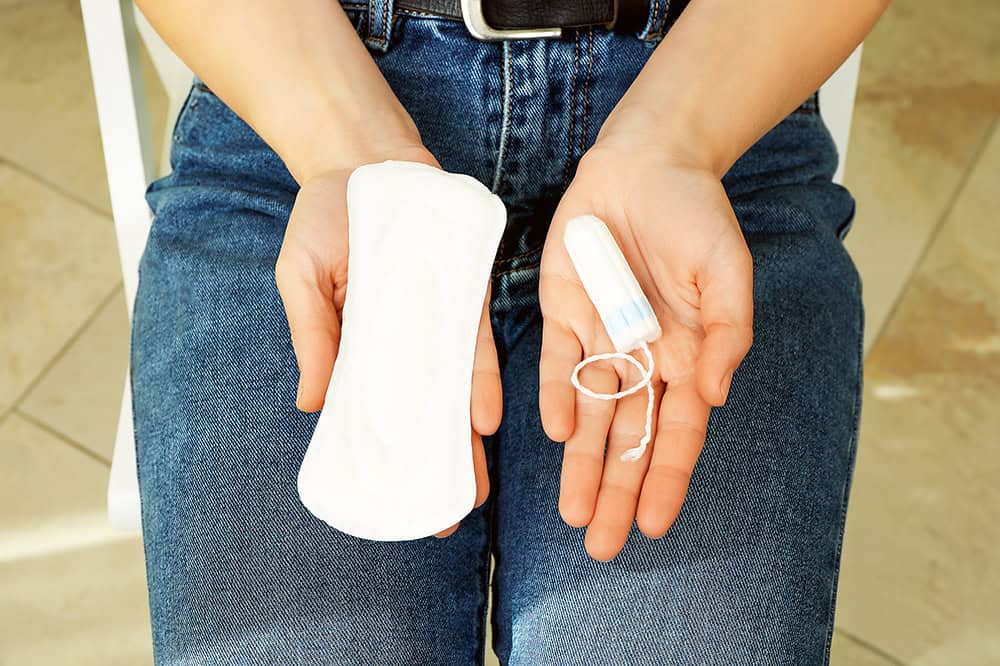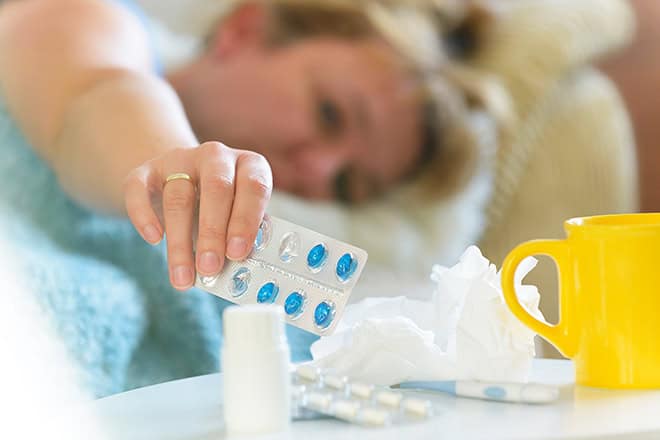Lund University, with more than 40,000 students and around 9,000 staff, does not generally offer free feminine hygiene products to staff or students. There is access to feminine hygiene products for staff in one of the faculty buildings and for students in one of the departments, says Ellen Karlsson, an HR specialist in Lund.
Last year, she presented a proposal on how free feminine hygiene products could be introduced throughout the university.
“Some sections within three different student unions had raised the issue,” she says.

Ellen Karlsson
HR specialist in Lund
The proposal is to install a dispenser in each of the university’s buildings. This would mean around a hundred machines at a cost of SEK 425 000. The running costs would amount to a further SEK 964 600 per year.
However, in December, the management decided to put the proposal on hold.
“At the moment, we do not believe that we have the resources to implement it university-wide. But that does not mean that we have said that we cannot do it at Lund University,” says Jimmie Kristensson, the deputy vice-chancellor responsible for equal opportunities at the university.

Jimmie Kristensson
Deputy vice-chancellor at Lund University
He points out that the university has a decentralised organisation and that it is up to the different parts of the organisation to decide whether to offer free feminine hygiene products.
“But we have said that the money that was set aside in the central budget is needed for other things right now.”
Universitetsläraren sent out a survey to 38 universities and colleges at the end of last year, all of which responded. The six higher education institutions that reported that employees are offered free feminine hygiene products were Karolinska Institutet, Luleå University of Technology, the Swedish Defence University, Mälardalen University, Jönköping University and Beckmans College of Design.
At Mälardalen University, feminine hygiene products have been available to both staff and students since April 2024. The university wants to create an inclusive and equal working environment, wrote Peter Liljenstolpe, Head of Campus and Security, in his response.
“No one should have to feel stressed, insecure and uncomfortable because of menstruation or lack of access to feminine hygiene product.”
In November, Luleå University of Technology, LTU, installed six dispensers for feminine hygiene products on the initiative of the student union.
“These machines will initially be installed on campus in Luleå in toilets that both students and employees have access to, although it is primarily for the benefit of students,” writes Sara Stark, Head of University Services at LTU, in an email.
Thirteen of the institutions surveyed offer free feminine hygiene products to students, although to varying degrees. At Kristianstad University there are dispensers in seven toilets in the buildings where students spend the most time. They were installed a year ago.
“The idea is that they are primarily for students, but of course employees can also go to these toilets and use them if necessary,” writes Birgitta Munkhagen, University Secretary at Kristianstad University.
At Halmstad University, students have access to free feminine hygiene products in one of the toilets in the student health centre.
“For a fairly large proportion of women, menstruation is a very big problem. Not least among young women, which is the majority of the women that use the student health service. So it is important that there are products available in the toilets when you get there,” says Brita Lundh, Head of Student Administration in Halmstad.

Brita Lundh
Head of Student Administration in Halmstad.
As far as she is aware, there has been no discussion about offering free feminine hygiene products to employees in Halmstad.
Umeå University offers free feminine hygiene products to staff and students at the School of Business. On the initiative of the student union, free feminine hygiene products for students have also been introduced in toilets in some other buildings, but there is no provision organised by the university centrally, says University Director Hans Wiklund.
However, he sees free feminine hygiene products as an aspect of equal opportunities.
“The simple answer is that we have chosen to prioritise other things when it comes to equal opportunities. But that does not mean that this is an unimportant issue.”

Hans Wiklund
University Director at Umeå University
However, the provision of free feminine hygiene products, at least for students, is still a live issue in Umeå. Other parts of the student union have raised it, and the management has therefore asked for more information.
“They have said that they will produce some information for further discussion. So the door is not completely closed,” says Wiklund.
Provision of free feminine hygiene products for employees has not been discussed at local union level. Members have not asked for it, according to Per Lundgren, chair of the SULF local association in Umeå. However, he thinks it is reasonable that a government employer should provide free feminine hygiene products for staff.
“My immediate thought is that it is a service for employees, so it is something I will have to take to the board and discuss,” he says.

Per Lundgren
Chair of the SULF local association in Umeå
The non-profit organisation Mensen has worked on campaigns for the trade unions Kommunal, IF Metall and Akademikerförbundet SSR.
“Access to free feminine hygiene products is a work environment issue,” says operations development officer Rebecka Hallencreutz. “It is an important part of a good work environment and should be as normal as the provision of soap, toilet paper and plasters.
Employers paying for sanitary towels and tampons is an investment in gender equality and health that saves them money in the long run, she says.
“There is also much to suggest that it benefits the employer’s brand if it takes a stand on these issues.”
She sees the fact that 6 out of 38 higher education institutions offer their employees free feminine hygiene products as positive.
“There is still a lot to do, but it is very positive. We, (the organisation Mensen, editor’s note), have also worked with and had some contact with student unions about this issue. So we can see that there is an escalating interest,” says Hallencreutz.

Rebecka Hallencreutz
Operations development officer at Mensen
Given the financial situation, it was to be expected that the management at Lund University would reject her proposal that employers pay for feminine hygiene products in the workplace, says HR specialist Ellen Karlsson. At the same time, she believes that higher education institutions should be role models.
“As state agencies, we have a greater responsibility to lead the way on these issues. A state agency is obliged to work to achieve gender equality policy goals, for example, and in the report I wrote for the management, I highlighted the fact that this is aligned with that work. We are also tasked with gender mainstreaming our organisation,” she says.
Universities where employees have access to free feminine hygiene products
Beckmans College of Design
The Swedish Defence University
Jönköping University
Karolinska Institute
Luleå University of Technology
Mälardalen University
Source: The higher education institutions’ own responses
Universities where students have access to free feminine hygiene products
Beckmans College of Design
The Swedish Defence University
Jönköping University
Kristianstad University
Karolinska Institute
Konstfack University of Arts, Crafts and Design
Luleå University of Technology
Malmö University
Mälardalen University
Sophiahemmet University
Stockholm University of the Arts
Halmstad University and Lund University provide free feminine hygiene products for students in some toilets.
Source: The higher education institutions’ own responses


















